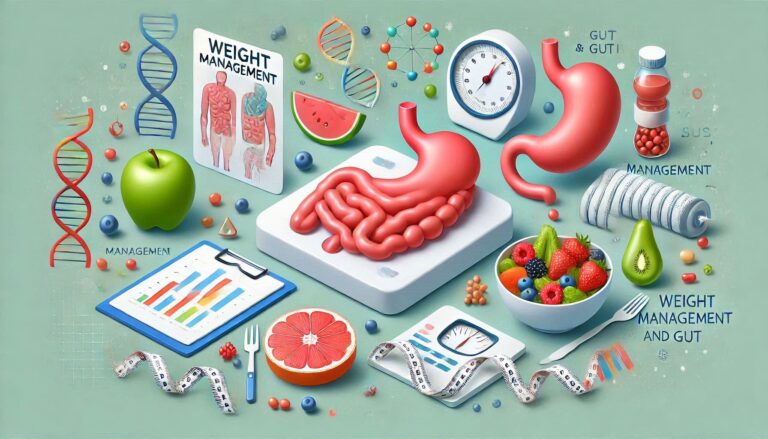Are you considering the keto diet but find it too restrictive or unsustainable? Do you want to know if there is a modified version of the keto diet that can help you achieve your health goals? Look no further than the modified keto diet, also known as keto 2.0.
What is the keto diet?
The ketogenic diet, or keto diet, is a low-carbohydrate eating plan that emphasizes high-fat foods. The goal of the diet is to put your body into a state of ketosis, where it burns fat for fuel instead of carbohydrates. This can lead to weight loss and other health benefits.
What is the modified keto diet?
The modified keto diet, also known as keto 2.0, is a less restrictive version of the traditional keto diet. It allows for slightly more carbohydrates and protein, making it easier to follow and more sustainable in the long term.
GET YOUR CUSTOM KETO DIET PLAN
How does the modified keto diet work?
Like the traditional keto diet, the modified keto diet aims to put your body into a state of ketosis. By limiting your carbohydrate intake, your body is forced to burn fat for fuel instead of glucose. However, the modified keto diet allows for slightly more carbohydrates and protein, which can make it easier to follow and more sustainable in the long term.
What are the benefits of the modified keto diet?
The modified keto diet has many of the same benefits as the traditional keto diet, including weight loss, improved insulin resistance, and lower triglycerides. However, because it is less restrictive, it may be easier to follow and more sustainable in the long term.
How to Follow the Modified Keto Diet
Macronutrient guidelines
The macronutrient guidelines for the modified keto diet are similar to those of the traditional keto diet, but with slightly more flexibility. The general guidelines are:
- Carbohydrates: 20–50 grams per day
- Protein: 1–1.5 grams per kilogram of body weight
- Fat: the remaining calories in your diet
Foods to eat and avoid
The modified keto diet emphasizes whole, nutrient-dense foods while limiting processed and refined foods. Foods to eat include:
- Meat, poultry, and fish
- Non-starchy vegetables
- Nuts and seeds
- Healthy fats such as olive oil, coconut oil, and avocado
Foods to avoid include:
- Sugars and sweeteners
- Grains and starches
- Processed and refined foods
- High-carbohydrate fruits such as bananas and grapes
GET YOUR CUSTOM KETO DIET PLAN
Meal plan examples
Here are some meal plan examples for the modified keto diet:
Day 1
- Breakfast: Scrambled eggs with spinach and avocado
- Lunch: Grilled chicken salad with mixed greens, cucumber, and tomato
- Dinner: Baked salmon with roasted asparagus
Day 2
- Breakfast: Greek yogurt with berries and almonds
- Lunch: Turkey and cheese roll-ups with cucumber slices
- Dinner: Beef stir-fry with broccoli and cauliflower rice
Modified Keto vs. Traditional Keto
Differences in macronutrient guidelines
The main difference between the modified keto diet and the traditional keto diet is the macronutrient guidelines. The modified keto diet allows for slightly more carbohydrates and protein, making it easier to follow and more sustainable in the long term.
Similarities in food choices
Both the modified keto diet and the traditional keto diet emphasize whole, nutrient-dense foods while limiting processed and refined foods. They also both aim to put your body into a state of ketosis, where it burns fat for fuel instead of carbohydrates.
Which diet is right for you?
The choice between the modified keto diet and the traditional keto diet depends on your personal preferences and health goals. If you find the traditional keto diet too restrictive or unsustainable, the modified keto diet may be a better fit for you.
GET YOUR CUSTOM KETO DIET PLAN
Health Benefits of the Modified Keto Diet
Weight loss
The modified keto diet can be an effective way to lose weight. By limiting your carbohydrate intake, your body is forced to burn fat for fuel instead of glucose. This can lead to rapid weight loss, especially in the first few weeks of the diet.
Improved insulin resistance
Insulin resistance is a condition where your body becomes less sensitive to the effects of insulin, leading to high blood sugar levels. The modified keto diet has been shown to improve insulin resistance in people with type 2 diabetes.
Lower triglycerides
Triglycerides are a type of fat found in your blood. High levels of triglycerides are associated with an increased risk of heart disease. The modified keto diet has been shown to lower triglyceride levels in people with high levels.
Better brain health
The modified keto diet has been shown to improve cognitive function and reduce symptoms of neurological disorders such as epilepsy and Alzheimer’s disease.
Maintenance of muscle mass
The modified keto diet can help you maintain muscle mass while losing weight.
Reduced inflammation
The modified keto diet has been shown to reduce inflammation in the body, which can help prevent chronic diseases such as heart disease, cancer, and diabetes.
Improved heart health
The modified keto diet has been shown to improve several risk factors for heart disease, including blood pressure, cholesterol levels, and blood sugar levels.
Reduced risk of cancer
The modified keto diet has been shown to reduce the risk of certain types of cancer, including breast, colon, and prostate cancer.
Improved energy levels
The modified keto diet can help improve your energy levels by providing a steady source of fuel for your body throughout the day.
Reduced symptoms of polycystic ovary syndrome (PCOS)
The modified keto diet has been shown to reduce symptoms of PCOS, a hormonal disorder that affects women of reproductive age.
These are just some of the many health benefits of the modified keto diet. If you’re considering the diet, be sure to talk to your healthcare provider to determine if it’s right for you.
GET YOUR CUSTOM KETO DIET PLAN
Frequently asked questions :
- What is the modified keto diet?
The modified keto diet, also known as keto 2.0, is a less restrictive version of the traditional keto diet. It allows for slightly more carbohydrates and protein, making it easier to follow and more sustainable in the long term. - How does the modified keto diet differ from the traditional keto diet? The main difference between the modified keto diet and the traditional keto diet is the macronutrient guidelines. The modified keto diet allows for slightly more carbohydrates and protein, making it easier to follow and more sustainable in the long term.
- What are the macronutrient guidelines for the modified keto diet?
The macronutrient guidelines for the modified keto diet are similar to those of the traditional keto diet, but with slightly more flexibility. The general guidelines are:
- Carbohydrates: 20–50 grams per day
- Protein: 1–1.5 grams per kilogram of body weight
- Fat: the remaining calories in your diet
4. What foods can I eat on the modified keto diet?
The modified keto diet emphasizes whole, nutrient-dense foods while limiting processed and refined foods. Foods to eat include:
- Meat, poultry, and fish
- Non-starchy vegetables
- Nuts and seeds
- Healthy fats such as olive oil, coconut oil, and avocado
5. What foods should I avoid on the modified keto diet?
Foods to avoid on the modified keto diet include:
- Sugars and sweeteners
- Grains and starches
- Processed and refined foods
- High-carbohydrate fruits such as bananas and grapes
6. Can the modified keto diet help me lose weight?
Yes, the modified keto diet can be an effective way to lose weight. By limiting your carbohydrate intake, your body is forced to burn fat for fuel instead of glucose. This can lead to rapid weight loss, especially in the first few weeks of the diet.
7. Is the modified keto diet safe?
The modified keto diet is generally considered safe for most people. However, as with any diet, there are some potential risks and side effects to be aware of. These include:
- Nutrient deficiencies: Because the modified keto diet restricts certain food groups, it can be difficult to get all the nutrients your body needs. It’s important to work with a healthcare professional to ensure you’re meeting your nutritional needs.
- Keto flu: Some people may experience flu-like symptoms when starting the modified keto diet, such as headaches, fatigue, and nausea. These symptoms usually subside within a few days to a week.
- Increased cholesterol levels: The high-fat nature of the modified keto diet can lead to increased cholesterol levels in some people. It’s important to monitor your cholesterol levels regularly if you’re following the diet long term.
8. How long should I follow the modified keto diet?
The length of time you should follow the modified keto diet depends on your health goals and personal preferences. Some people follow the diet for a few weeks or months to jump-start weight loss, while others follow it long term for ongoing health benefits.
9. Can I drink alcohol on the modified keto diet?
Alcohol is generally not recommended on the modified keto diet, as it can interfere with ketosis and cause dehydration. If you do choose to drink alcohol, it’s important to choose low-carbohydrate options and drink in moderation.
10. Can I eat out on the modified keto diet?
Yes, you can eat out on the modified keto diet. However, it’s important to choose restaurants and menu items that align with the macronutrient guidelines of the diet. Look for dishes that are high in healthy fats and protein, and avoid foods that are high in carbohydrates and sugars.
GET YOUR CUSTOM KETO DIET PLAN
Conclusion
The modified keto diet is a less restrictive version of the traditional keto diet that can help you achieve your health goals. By following the macronutrient guidelines and food list, you can enjoy the benefits of ketosis without feeling deprived or unsatisfied. Whether you’re looking to lose weight, improve your insulin resistance, or maintain muscle mass, the modified keto diet is worth considering. So why not give it a try and see how it works for you?




